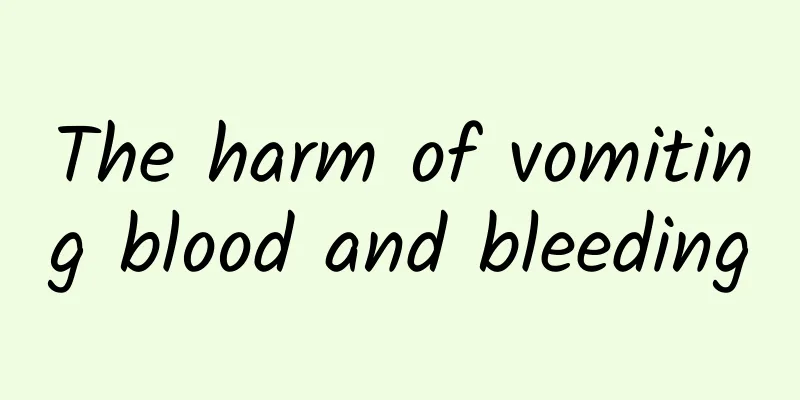The harm of vomiting blood and bleeding

|
When we watch TV, if someone vomits blood, it usually means that the person has some disease. In fact, it is not the case in real life. Sometimes vomiting blood is only related to some minor diseases, but if the amount of vomiting blood is too high, the harm is more serious. The specific impact caused by the amount of vomiting blood is as follows: The characteristic manifestations of upper gastrointestinal bleeding are vomiting blood and black stools. Patients with upper gastrointestinal bleeding all have black stools, but they do not necessarily vomit blood. If only the fecal occult blood test is positive, it indicates that the daily bleeding volume is less than 5-10 ml. If black stools appear, it means the amount of bleeding is more than 50-70 ml. When the amount of blood accumulated in the stomach reaches 250-300 ml, it can cause vomiting blood. Generally, no systemic symptoms occur when the amount of bleeding is less than 400 ml. If the amount of bleeding is between 400 and 500 ml, symptoms such as dizziness, palpitations, and fatigue may occur. If the amount of bleeding exceeds 1000 ml, clinical symptoms of acute peripheral circulatory failure will appear, that is, blood pressure drops, heart rate first fast and then slow, etc. In severe cases, hemorrhagic shock may occur. prevention The prognosis for the vast majority of newborns with gastrointestinal bleeding is good, and clinical manifestations may include vomiting blood or blood in the stool, and the amount of bleeding may be more or less. If the amount of blood in the stool is small, bright red and not mixed with the stool, the lesion is in the rectum or anus below the colon and the condition is usually mild. The severity of hematemesis and bloody stool depends mainly on: the amount of blood loss and its speed; the cause of blood loss and its underlying disease. Generally, when the amount of vomited blood is large and the vomitus is brown or black or contains bile, and the condition is serious and the blood loss exceeds 1/5 of the total blood volume, hemorrhagic anemia and (or) hemorrhagic shock may occur and should be treated actively. This article introduces the hazards of vomiting blood and its prevention methods. For newborns, if you want to prevent vomiting blood, new mothers need to take preventive measures during pregnancy and eat more vitamin K. If dystocia and premature birth occur, you should pay attention to injecting vitamin K. Only in this way can you better prevent newborns from vomiting blood. |
<<: Can burdock treat Parkinson's?
>>: How to treat right medial malleolus fracture
Recommend
Why does the glans turn black?
The male glans is a delicate and particularly sen...
Causes and treatments of bumps at the base of the tongue
The appearance of bumps at the root of the tongue...
Causes of bilateral choroid plexus cysts
It is well known that bilateral choroid plexus cy...
Sequelae of autoimmune encephalitis
Autoimmune encephalitis is a common encephalitis....
Will eating “grass” make your breasts softer? An old Chinese doctor teaches you how to detoxify
Dandelions can give your life and a fresh force i...
What is frequent nosebleeds?
Nosebleeds are a very common phenomenon. Sometime...
What are the medicines for relieving cough and reducing yellow phlegm?
Colds and fevers are still very common in our liv...
What are the effects and functions of mugwort?
The medicinal value of mugwort can be manifested ...
The pregnancy test stick is weakly positive but the menstruation comes. What is the reason?
A weak positive result when using a pregnancy tes...
What to do if baby's skin becomes hard and rough due to eczema
The baby's skin is particularly delicate. If ...
High visceral fat
Too much fat in the human body can cause various ...
Early detection of wind-heat cold tongue coating changes
Wind-heat cold can cause thick tongue coating, an...
Fungal eye infection symptoms
It is said that eyes are the windows to the soul,...
Why do I have stomach pain after waking up?
Many people suddenly find that their stomach hurt...
What light dishes should I eat when I have diarrhea?
Diarrhea is commonly known as "diarrhea"...









